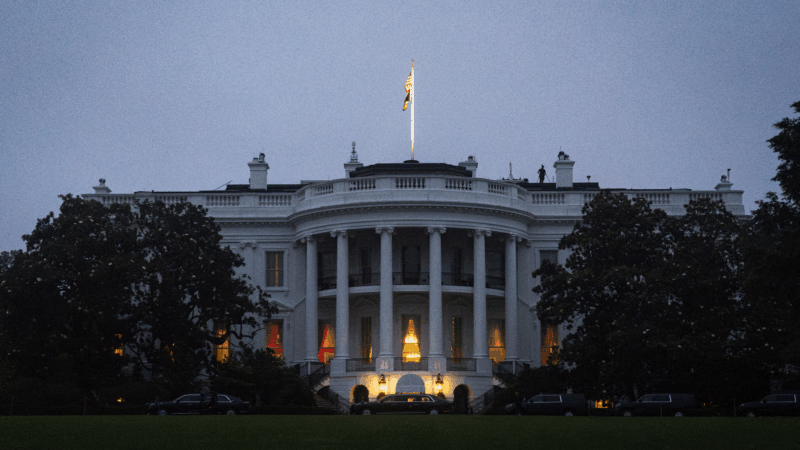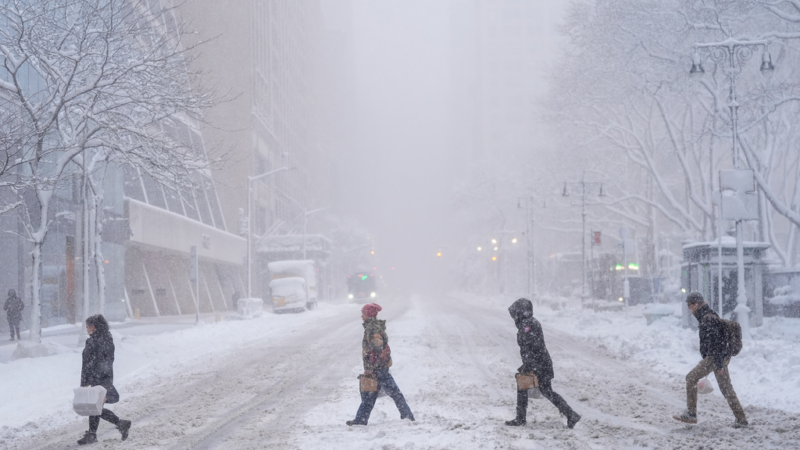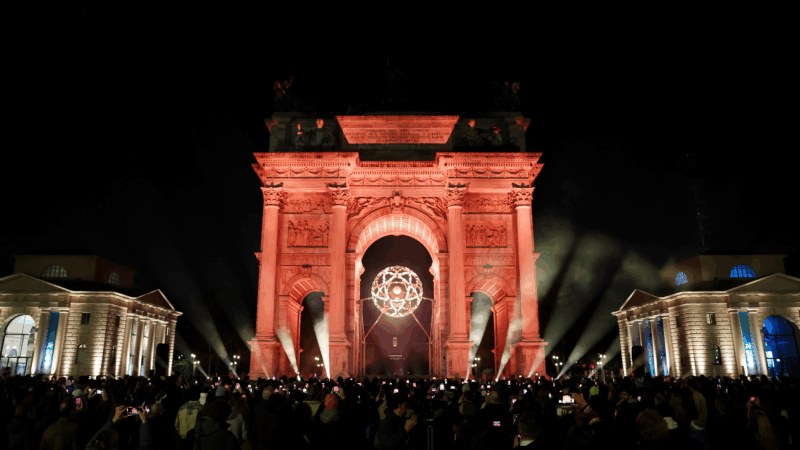Trump threatens Iran’s supreme leader, escalating his rhetoric about the conflict
President Trump escalated his rhetoric against Iran on Tuesday, issuing a threat on social media against its Supreme Leader Ayatollah Ali Khamenei and taking credit for having “complete and total control of the skies over Iran.”
“We know exactly where the so-called ‘Supreme Leader’ is hiding. He is an easy target, but is safe there — We are not going to take him out (kill!), at least not for now,” Trump said in a post — one in a series of statements he made before meeting with his national security team in the White House Situation Room about the conflict.
That is a rhetorical step further than Trump had gone on Monday. He had been asked about whether he wanted to see regime change in Iran, and replied: “I want to see no nuclear weapon in Iran, and we’re well on our way to making sure that happens.”
On Tuesday, Trump suggested that Iran would cross a red line if it attacked U.S. assets in the Middle East. “We don’t want missiles shot at civilians, or American soldiers. Our patience is wearing thin,” Trump said.
He had earlier told reporters that he didn’t think Iran would strike U.S. assets in the region because of the risk of retaliation. “Oh, we’ll come down so hard. If they do anything to our people, we’ll come down so hard. Then the gloves are off so beautifully,” Trump said. “I think they know not to touch our troops. We’ll find out.”

Some lawmakers want to block U.S. military involvement
When Israel launched its strikes on Iran’s nuclear facilities last week, the White House had sought to make clear that it was not involved, issuing a statement from Secretary of State Marco Rubio that Israel had carried out the strikes unilaterally.
But on Tuesday, Trump suggested on social media that the United States was involved to some degree after all. “We now have complete and total control of the skies over Iran,” Trump said, noting that American equipment was being used.
Some lawmakers are working to block any U.S. military involvement in the conflict without their approval. On Tuesday, Rep. Thomas Massie, R-Ky., introduced a resolution in the House that would prevent Trump from engaging in “unauthorized hostilities” against Iran without an explicit declaration of war or authorization from Congress. The resolution was co-sponsored by Rep. Ro Khanna, D-Calif.. A similar push was being led in the Senate by Virginia Democrat Tim Kaine.
“The ongoing war between Israel and Iran is not our war,” Massie said in a statement. “Even if it were, Congress must decide such matters according to our Constitution.”
Once introduced, the House and Senate will be forced to vote on the measures. But Republicans have been very reluctant to rein in Trump’s power on other issues and remain publicly divided on Iran. Congress voted to invoke the War Powers Resolution in 2020 to constrain Trump’s actions against Iran during his first administration. Trump vetoed that measure and Congress failed to override the veto.
Trump on Tuesday called for “UNCONDITIONAL SURRENDER!” from Iran — and did not mention anything about negotiating with Iran, which previously had been his focus. Earlier on Tuesday, reporters had asked Trump whether he would send Vice President Vance and his special envoy Steve Witkoff to negotiate with Iranian officials.
“Depends on what happens when I get back,” he told reporters traveling with him from the G7 in Canada. “I don’t know. I’m not too much in a mood to negotiate.”

The conflict has divided Trump supporters
Trump has long been known for his “America First” ethos and non-interventionist stance, campaigning to disentangle the United States from foreign wars. As Israel’s strikes on Iran have intensified, some of his prominent supporters have urged him not to get involved in the conflict.
Trump has bristled at some of the criticism, particularly from former Fox News host Tucker Carlson. “Somebody please explain to kooky Tucker Carlson that, ‘IRAN CAN NOT HAVE A NUCLEAR WEAPON!'” Trump posted on his social media platform.
On Tuesday, the White House circulated a long list of quotes from Trump over the years seeking to show that he has long held the position that Iran’s nuclear program must be stopped.
Vice President Vance also weighed in on social media, saying Trump had shown “restraint” in the crisis but has the right to decide to get more involved.
“He may decide he needs to take further action to end Iranian enrichment,” Vance said. “That decision ultimately belongs to the president.”
Kate Hudson on regret, rom-coms and finding a role that hits all the notes
Hudson always wanted to sing, but feared it would derail her acting career. Now she's up for an Oscar for her portrayal of a hairdresser who performs in a Neil Diamond tribute band in Song Sung Blue.
A powerful winter storm is roiling travel across the northeastern U.S.
Forecasters called travel conditions "extremely treacherous" and "nearly impossible" in areas hit hardest by the storm, and air and train traffic is at a standstill in many parts of the region.
U.K. arrests ex-ambassador to the U.S. on suspicion of misconduct over Epstein ties
Police have arrested Peter Mandelson, a veteran Labour Party politician who served as British ambassador to the U.S., as part of an investigation into his ties with Jeffrey Epstein.
What NPR reporters will remember most about these Winter Olympics
NPR's reporters on the ground in Italy reflect on a far-flung, jam-packed Winter Olympics.
In the shadow of the Olympics, migrants search for a welcome in Milan
As Italy cracks down on migration, Milan takes a different path — offering shelter and integration to asylum seekers even as the central government tightens borders and funds deterrence abroad.
Trump to raise global tariffs. And, most say the state of the union is weak, poll says
President Trump says he is raising global tariffs to 15%. And ahead of the president's address tomorrow, most Americans say the state of the union is not strong, according to an NPR poll.







